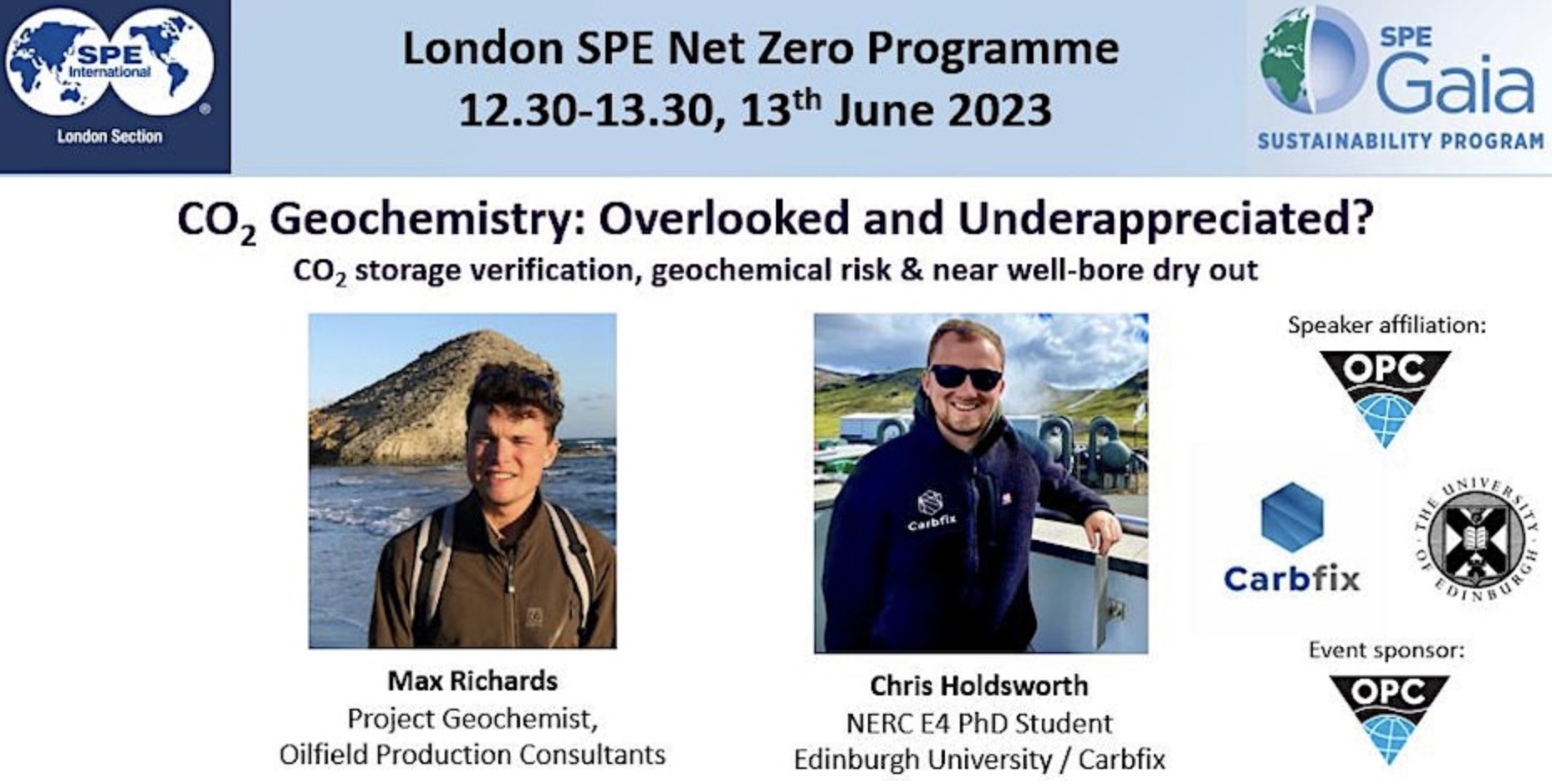The London SPE Net Zero Gaia committee, with thanks to our sponsors OPC, is very excited to bring you this lunch and learn: ‘CO2 Geochemistry: Overlooked and underappreciated?’
The virtual (via Zoom) event is scheduled for 13 June 2023 from 12.30 – 13.30 BST. Speakers are Max Richards (Oilfield Production Consultants (OPC)) and Chris Holdsworth (Edinburgh University / Carbfix).
The two carbon capture and storage industry practitioners will be giving technical presentations covering geochemistry, drawing from example projects.
Geochemistry is sometimes overlooked as a tool to de-risk, characterise, and verify CO2 storage potential of subsurface formations. When used effectively, it can improve our understanding and anticipation how indigenous reservoir fluids, injected gases, and mineralogy will interact. Understanding this reaction can help engineers and geoscientists to predict fluid behaviour for potentially 100�s of years.
To help us understand these critical challenges, we will be joined by speakers from OPC and Edinburgh University / Carbfix, each of whom will present on their topics and answer audience questions.
Max Richards from OPC will give a talk covering wider geochemistry including the impact of near well bore dry out and options for modelling and mitigation. The presentation will go into some detail regarding common fluid rock interactions, some commentary on the role of impurities, and how to utilise geochemistry in your project to support wider reservoir modelling.
Chris Holdsworth, Edinburgh University / Carbfix, will give a talk on how to use geochemistry to verify CO2 storage. Carbon capture and storage (CCS) and carbon dioxide removal (CDR) projects are required to demonstrate secure CO2storage post-injection to ensure CO2 remains sequestered permanently. Traditionally this has been done using geophysical methods such as seismic surveys. In this talk, Chris will explain how certain geochemical analyses can be utilised for this purpose. Specifically, he will discuss how the natural isotopes of water, CO2 and noble gases can be used to quantify CO2 storage in geological storage reservoirs.

